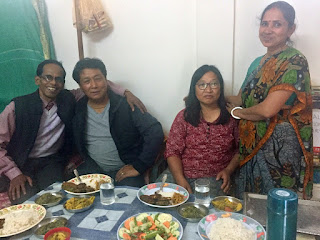A PERSONAL REFLECTION ON COVID -19 PANDEMIC
When the first Coronavirus Disease (COVID-19) case was reported from China in late 2019, nobody thought that the virus will spread this fast globally and cause health crisis of unprecedented proportion. According to WHO report, the total number of infected case worldwide stand at a staggering 19,402,112 with 722,285 deaths as of August 9. The grim reality is that, the worst is yet to come with infection rates peaking each passing day.
One WHO official summed up this pandemic as a, “Once in a century outbreak.”
COVID-19 pandemic has exposed how ill prepared human beings really are in the face of global health crisis like this. The virus brought to the fore the naked truth of the capabilities of different global leadership in managing the crisis. Despite having tremendous resources at their disposal, some of the most advanced countries continue to have the highest rate of infections and deaths while some so called poorer countries continue to do much better solely because of the actions of their leaders.
People of Bhutan can be truly called the most blessed ones on the face of the earth for no small reason because of the enlightened leadership of the successive kings. Each time the country is faced with some kind of crisis, it was their Majesties the kings who were at the forefront of the crisis management and thus Bhutan was able to navigate itself successfully.
On the night the first COVID-19 positive case was detected in a tourist, His Majesty the King spent the entire night with the Prime Minister, Health Minister and a team of health professionals personally overseeing contract tracing operation. Not many leaders would have done that. It showed how concerned His Majesty is for the wellbeing of its people. Thereafter, despite impending arrival of the second prince, His Majesty made repeated tours to all parts of the country to monitor our preparedness in the event of the worst case scenario.
At a time when so many people lost their livelihoods, it was His Majesty’s welfare and Kidu schemes that have mitigated their plight. Deferment of loans repayments and waiving off of interests for six months continues to provide immense relief to thousands of Bhutanese families.
The government must also be commended for the work it is doing on a war footing in response to unprecedented situation caused by COVID-19 pandemic. The fact that, there is not a single community outbreak so far is because of the effective measures put in place by the government.
Despite the uncertainty posed by the virus, the positive thing is that there is a visible sign of patriotism in the country with most Bhutanese doing their part in one way or the other as COVID-19 response. From institutions to individuals, from those at the frontline treating positive cases to those braving rains heat and mosquitoes in the borders. From business houses to farmers everyone has come together collectively in an unprecedented manner.
At times like this, when science is grappling to find answers, it is prayers and blessings that are more potent than missiles with nuclear warheads. Bhutanese must feel grateful to be living in a land blessed by great saints like Guru Padmasambhava, Zhabdrung Rimpoche and countless spiritual masters for centuries. And we are fortunate to be blessed by the prayers of living Buddhas like His Holiness, the Je Khenpo, Rimpoches, Tuelkus and the entire religious institutions whose prayers continue to keep us safe.
Since very little is known about the behaviors of the virus, the best we can do isto follow directives issued from time to time. But, there are stray incidences of irresponsible people whose action could undo the efforts put in so far. Some people are caught trying to sneak in and out of the country to peddle contraband substances. Some tried to escape quarantine and greedy few were caught trying to sneak in illegal workers. These people are rightly being dealt by the law.
COVID-19 pandemic is having devastating effect but, it teaches us valuable lessons. This outbreak and many outbreaks of the recent past like SARS, MERS and Ebola have to do with the way we live. It is how nature fights back from excessive abuse by humans to gratify their insatiable greed. Some believe that the virus jumped from some animal to human. This would not have happened if humans stopped abusing wild life to the extreme of eating them alive.
There are some who believe, that new and deadlier strains of virus are being released from thawing ice, snow and permafrost as a result of global warming. Humans alone are to be blamed for global warming. Deforestation of precious tropical rain forest on mega scale are reducing carbon sink area while polluting factories and industries to meet insatiable human greed are mushrooming at an unprecedented rate everywhere.
Then there are people who even believe that the corona virus is lab manufactured, this claim is refuted by most experts though. If at all this virus is lab manufactured, then, humans are facing the consequences of their own making.
The pandemic also reminds us that, the so called global military and economic powers stand no chance if we are to face the fury of the nature. Interestingly, it is those powerful and rich countries that are seeing some of the highest infections and deaths rates. The COVID-19 pandemic is a call for a more caring and compassionate human society where endless growth fuelled by our greed must end or else the actions of humans will certainly be the reason for the extinction of human race from the face of the earth as was predicted by one famous scientist.
In the aftermath of COVID-19 pandemic, global community must learn a valuable lesson and make a paradigm shift to their development philosophy from unsustainable and endless growth model of GDP to a more compassionate, holistic and desirable GNH model which Bhutan gifted the world.
Gyembo Namgyal
Pemagatsel
August 10, 2020









